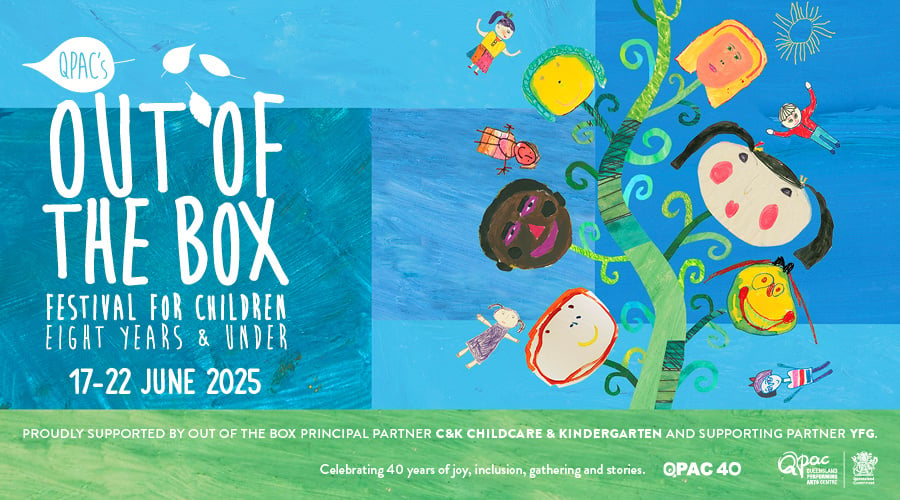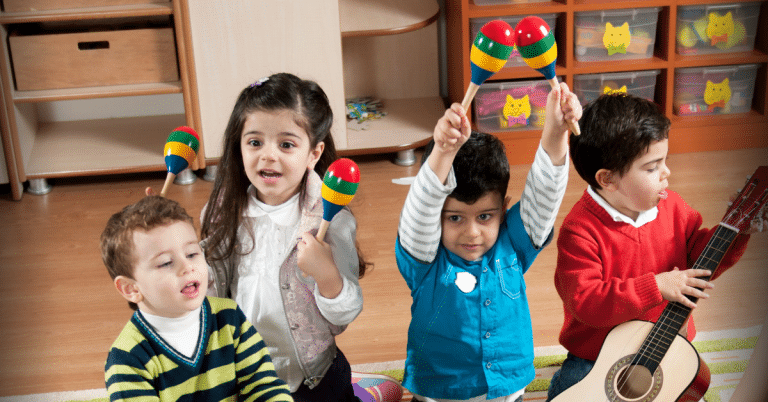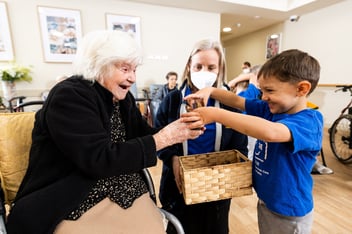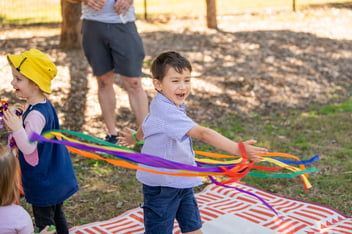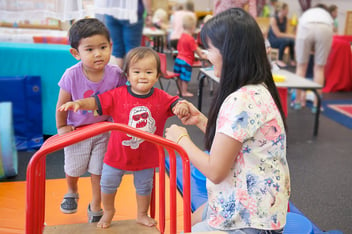
Building Strong Bodies and Minds Through Play
Blog > Building Strong Bodies and Minds Through Play

Building Strong Bodies and Minds Through Play
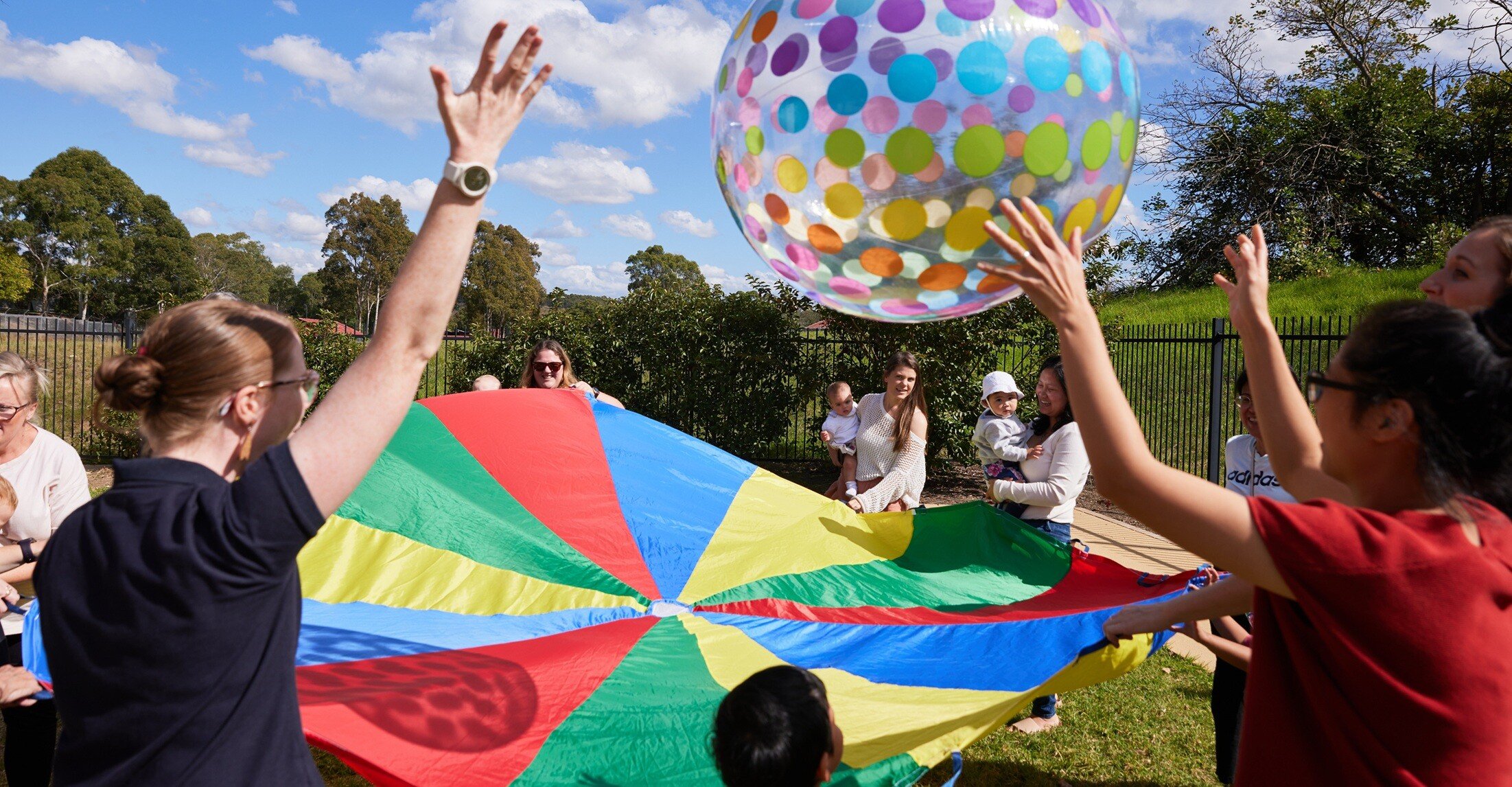
Physical play doesn't have to mean elaborate plans, or extra pressure to fit activities in, there are easy and accessible modes of movement like dancing in the kitchen, playing tag in the hallway, throwing a ball, or stretching before bed which do wonders for your child’s development and your family’s connection.
Why is physical play so important in the first 1000 Days?
In the first 1000 days of life, a child's brain develops at an astonishing pace. During this critical period, it forms more than a million neural connections every single second. The experiences a child has during these crucial days shapes the structure of their brain and lifelong learning.
Physical play is the natural way children stimulate these neural connections. It switches on the brain's learning centre, enhancing cognitive functions like problem-solving, memory, and attention span.
"Playing outside also helps children to learn to appreciate the natural environment and learn about their place in it." - Australian Childcare Alliance.
These experiences contribute to children's cognitive development, fostering flexibility, strength, and coordination. As a result, children develop a sense of curiosity and engagement with the world around them, setting the stage for lifelong learning.
Physical play is essential for children's growth and development, significantly influencing their mental, emotional, and physical wellbeing. More than that, physical play can dramatically strengthen the bond you share with your child. Let's dive into some of the ways you can use physical play to support your child’s development and your parent-child connection.
What exactly is physical play?
Physical play is simply activities that involve moving the whole body, and using the gross motor skills (walking, running, climbing, jumping, dancing), rather than focusing on the fine motor skills (drawing, painting, playing with cars).
Physical play can be done indoors (think lounge room floor is lava or odd sock balls down the hallway), if you have enough room to play safely, or outdoors in places like the garden, playgrounds, or a swimming pool.
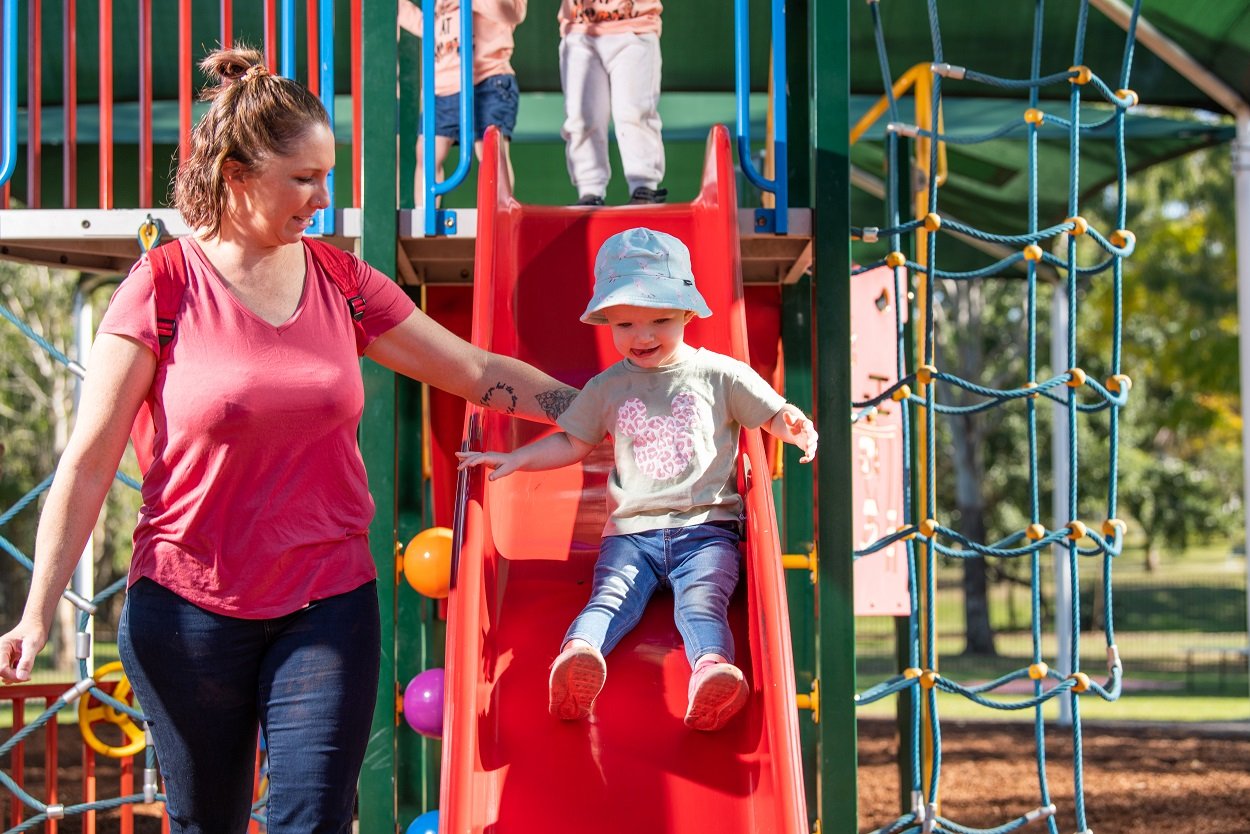
How does physical play help with bonding?
Playing together sends a powerful message, that children are important enough to share in activities that engage with them. This sense of importance nurtures a robust, healthy attachment, laying a strong foundation for their emotional development and future relationships. Shared play experiences also cultivate empathy, understanding, and mutual respect, further reinforcing the bond between families and children.
-2.jpg?width=1840&height=1228&name=YARRABAH%20(24)-2.jpg)
Communicating through play the ultimate toddler tamer?
Young children often struggle to communicate their needs which often leads to frustration for them and adults trying to understand what they want. Physical play can be a great way to help children communicate what they need and lets them play out scenarios that allow them to express their feelings, emotions and imagination without the usual rules and restrictions of daily life. It also gives parents and carers an insight into their emotions, thoughts and desires as they express themselves through role playing, dance, and pretend play.
"Play allows children to use their creativity while developing their imagination, dexterity, and physical, cognitive, and emotional strength."
In this nurturing environment, children can develop their verbal and non-verbal communication skills as they work through different games and activities.
Getting the family involved
Engaging in physical play as a family not only strengthens the bond between parents and children but also offers several other benefits. It helps in maintaining good physical health and promotes active lifestyles. By playing together, families can manage stress better, enhancing overall family wellbeing. Physical play, especially playing games and doing team work activities can boost social skills, communication, turn taking and respect.
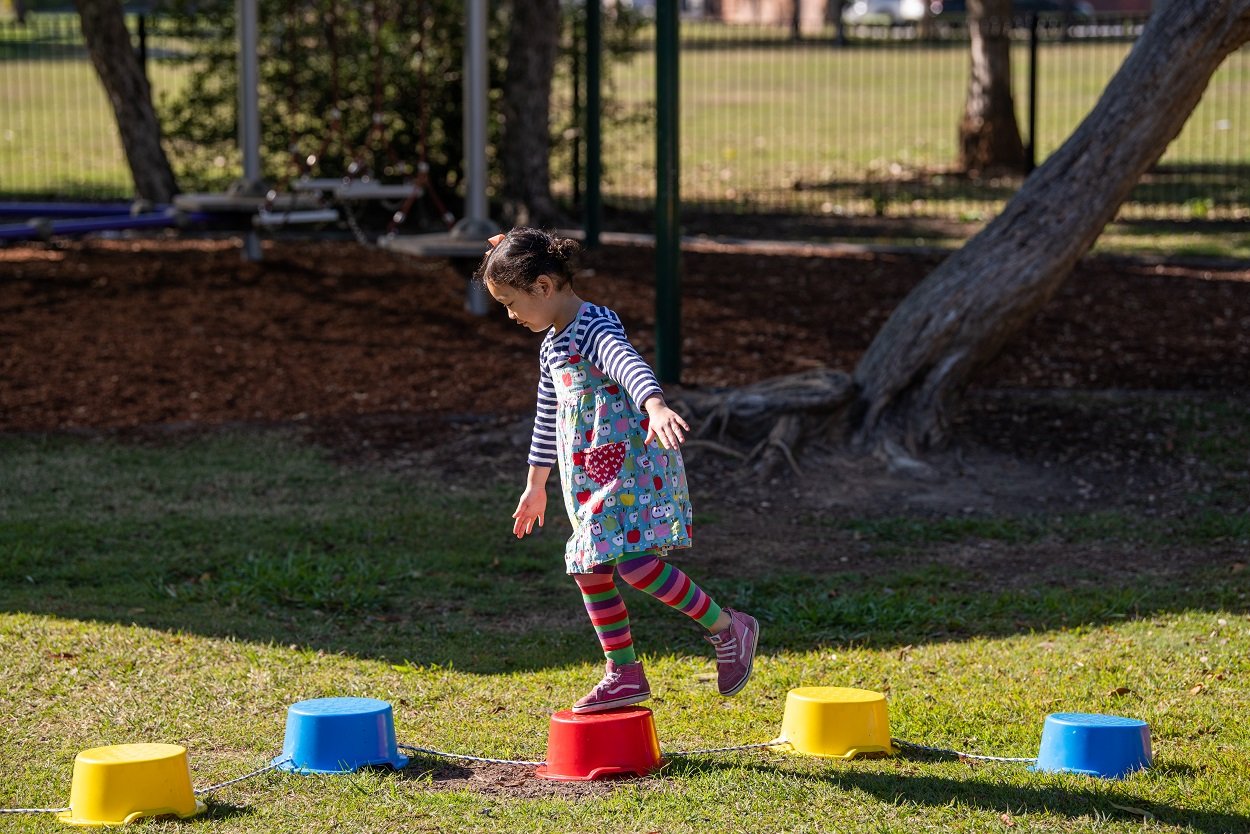
How to make the most of physical play
The most important thing when it comes to physical play is to keep it simple and fun. Use everyday objects, get outdoors, and let your child take the lead. Remember, it's not about being the best; it's about being together, exploring, and enjoying the moment.
Children love to play, and sharing in play together can boost your child’s brain development, create a greater connection and help their communication skills.
Play comes naturally to children, and they’re naturally motivated to use it to learn as they discover, create, improvise, and imagine. So, let's embrace physical play and foster a healthier, happier, and stronger bond with our children.
Learning from mistakes, finding innovative solutions to problems and discovering their identity all happen through creative play. When we let children play in a way they choose without direction, it frees them from rules and fixed thinking. Without set guidance from adults, children often come up with surprising and delightful ways of playing.
Let children enjoy creative play so they’ll become better thinkers, and don’t be scared to get involved in their play and rediscover your own inner child and have some fun!
Resources:
Australian Childcare Alliance. (2025). The importance of outdoor play in childhood. https://nsw.childcarealliance.org.au/nsw-news/598-the-importance-of-outdoor-play-in-childhood
Parenting Research Centre. (2025). The Power and Importance of Play. https://www.parentingrc.org.au/
Raising Children. (2025). Toddlers: play and learning. https://raisingchildren.net.au/toddlers/play-learning/play-ideas
NSW Department of Education. (2025). Play-based learning. https://education.nsw.gov.au/early-childhood-education/what-we-offer-and-why/our-service-offer/play-based-learning
Find a play experience near you:
Subscribe to our newsletter >
Related content:
Advertisement:
.jpg)
